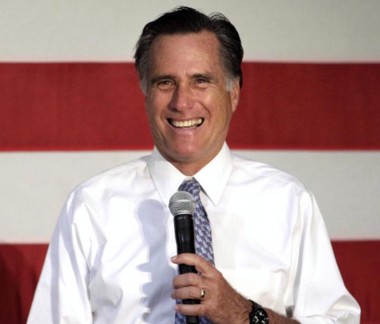With the midterm elections just six months away, President Obama and the Democrats are pining for the days of Mitt Romney.
Obama wants the 2014 campaign to be about the economy and is doing everything he can to portray the GOP as out of step with middle-class concerns on issues from the minimum wage to taxes.
What’s missing is Romney, the former GOP presidential nominee whose background as a venture capitalist made him a rich target for populist attacks.
The Obama campaign cast Romney as an elitist businessman and pounced on small biographical details, like the construction of a car elevator in his home garage, to feed the narrative that he was a heartless plutocrat. Romney’s missteps on the campaign trail, such as the surreptitiously taped remark about the “47 percent,” made the caricature harder to shake.
While Democrats have sought to recapture their success in 2014 by vilifying the conservative donors Charles and David Koch, they concede the populist arrows were easier to land against the former Massachusetts governor.
“You always want to be able to personify the opposition, and Romney was the perfect way to do that. In fact, he couldn’t have been more perfect,” said one former senior White House official. “He was the gift that kept on giving with all of his out of touch statements, his homes. Who can forget the car elevator? There isn’t a perfect figure anymore, and that will tougher for us.”
Republicans decried the attacks on Romney as unfair and are hoping to get their revenge by handing Democrats another “shellacking” in November.
Kirsten Kukowski, a press secretary at the Republican National Committee, said Democrats have “relied on fake narratives instead of substance for far too long,” and “it’s catching up to them.”
“The Democrats talking about the Koch brothers and trying to find the next boogeyman shows voters just how out of touch they are, out of touch with voters who are concerned with a Democrat Party that has increased government’s reach into our lives, that has left us with an unstable economy and a failed healthcare law that has resulted in loss of care and increased insurance costs.”
The midterm election cycle is stacking up against Democrats. With the president’s approval rating mired at all-time lows, the liberal base increasingly deflated and ObamaCare deeply unpopular with parts of the electorate, holding onto the Senate appears to grow harder by the day.
Those factors have some suggesting that the White House needs a new tack.
“Republicans can continue to run against healthcare, they can point to Benghazi, they can even point to the president,” another former administration official said. “We don’t really have that. The easiest person to demonize is the Koch brothers, and few people outside of Washington know who they are. They need to break through to an electorate that only catches on if it’s in a viral video.”
Cal Jillson, a professor of political science at Southern Methodist University, said that because there’s no “universal face” to epitomize the Republican Party in 2014, the White House has to play a different game.
“They need to really work the fundraising and give their candidates a lot of leeway to oppose the administration,” Jillson said. “And the candidates themselves need to use a local focus, not highlighting national issues.
Some campaigns are already following that script by shifting away from national issues to focus on concerns back home.
Still, many of the candidates are invoking Romney on some level. A Democrat close to the campaign for Sen. Kay Hagan (D-N.C.), one of the party’s most vulnerable candidates, said they are using a page from the Romney playbook against their opponent, Thom Tillis. (The connection is easier to make with Romney endorsing Tillis in the race last week.)
“He’s similar to Romney in that he’s out of touch and out of sync with common-sense values in North Carolina,” the Democrat said.
While the former senior official said the White House can’t look back and keep hitting the man who was the last GOP standard-bearer—“that election is over and two years in the past”—he said it makes sense to remind voters of the divide that has existed between the parties in recent years.
“The fact of the matter is, [Republicans] haven’t done much to change since the last election,” the former official said. “It’s almost like they didn’t learn their lesson.
“They’re no better on immigration, equality, improving their message to the so-called 47 percent. It’s not bad to remind voters of that,” the former official said. “It’s whether they see through it.”
Ben LaBolt, who served as national press secretary for the Obama reelection campaign, said he wouldn’t be surprised to see Romney’s name—or at the very least similar themes—invoked more in 2014 races.
“One of our core arguments was that [Romney] said he’d jumpstart the economy, but he didn’t come up with a single original idea that hadn’t been used by other Republicans, by saying that you could cut your way to prosperity,” LaBolt said. “They believed that spending cuts and tax cuts are all you needed to improve the economy. People don’t believe that anymore.
“To the extent that candidates make those arguments, I think you’ll hear Romney revisited,” he said.•



